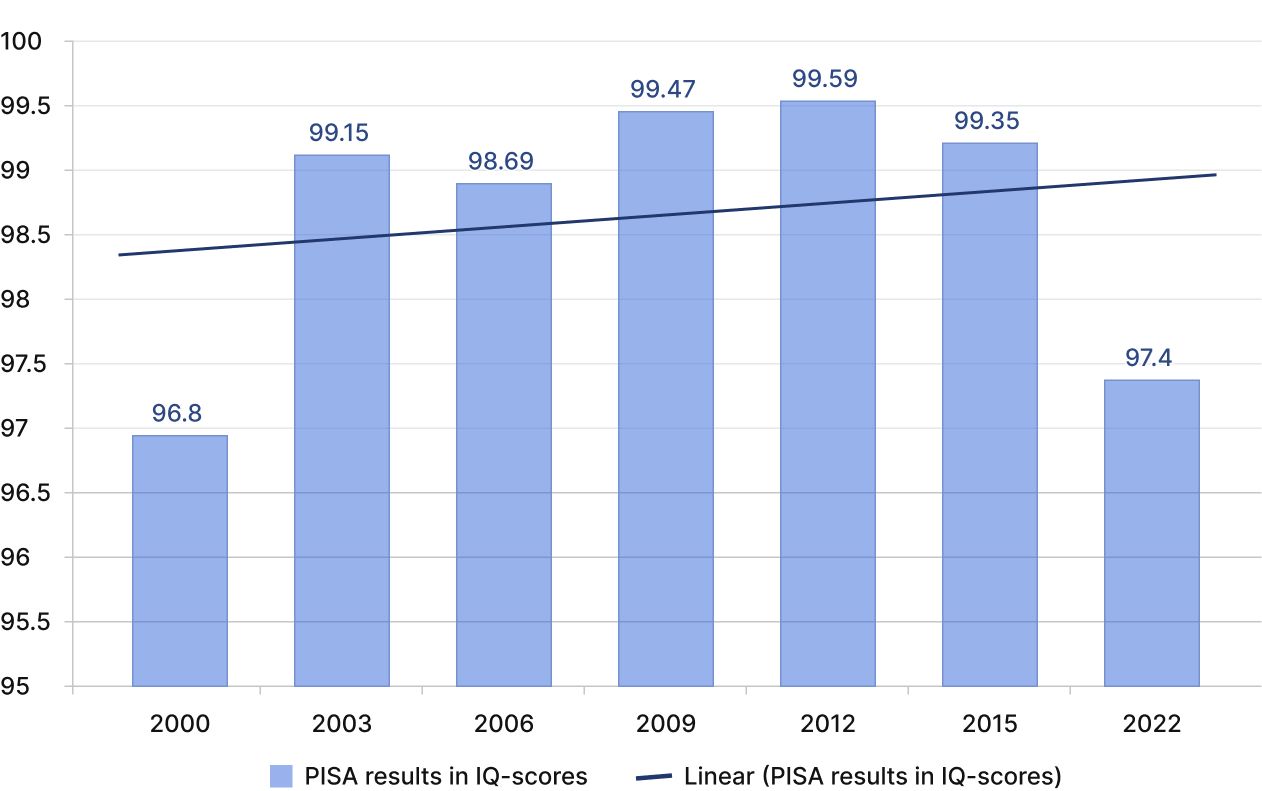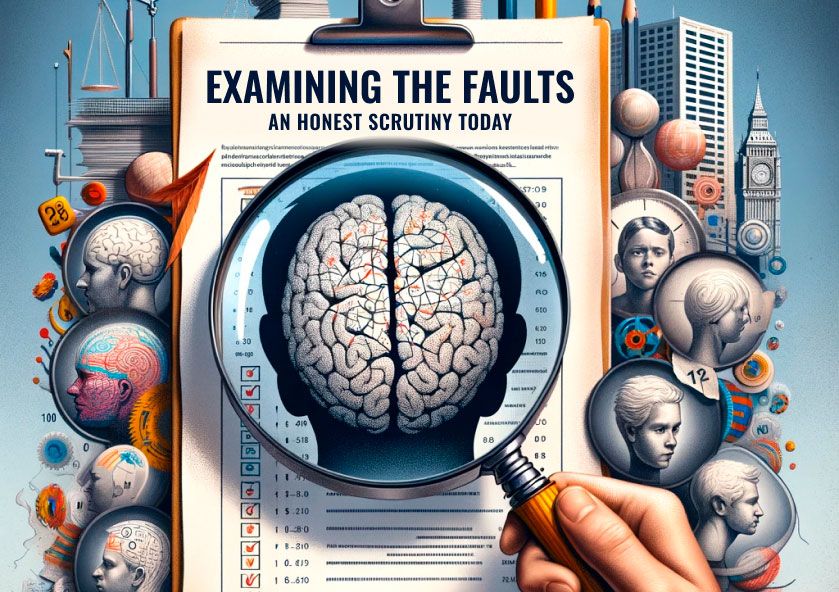Dynamics of the National IQ Level in France
The first publications dedicated to the research of French IQ appeared more than 40 years ago. In 1981, V. Buj published the work "Average IQ values in various European countries" [1], which reflected the results of IQ research among young people, with an average age of 20 years. According to his research, the adjusted average IQ score was 86.32.
H. N. Nkaya, M. Huteau, and J.-P. Bonnet [5] researched the IQ of Parisians, with an average age of 12.5 years. They conducted the research in three stages, but only the results of the first stage were used in the final calculation. The results of the second and third stages were not counted, considering the learning effect during the first stage. The IQ score based on their data was 110.98. This figure was the highest during the entire study period.
According to data published by J. Georgas, L. G. Weiss, F. van der Vijver, and D. H. Saklofske [3] in 2003, the average IQ score of subjects with an average age of 11 years was 93.24. J. Raven, J. C. Raven, and J. H. Court [7] also researched the IQ of Parisians, with an average respondent age of 7.5 years. Their data showed an IQ score of 107.83.
According to research by E. Roivainen [8], published in 2010 in the journal "Intelligence," the average French IQ was 101.99. Richard Lynn and David Becker in 2019 [4] published a study determining the national IQ, which is currently recognized as relevant, including in the World Population Review [2]. The IQ score for France was 96.69. This indicator takes into account the results of studies carried out according to different methods, with correction calculations.
PISA results in IQ-scores for France

Note: developed based on [4], [9].
As seen in the chart, the IQ dynamics of the French, calculated using the PISA method, show an upward trend. According to the PISA method, there was a decrease in the score (in 2015 it was 99.35, and in 2022 it was 97.4).
As seen in the chart, in 2015, the IQ score of the French, calculated using the TIMSS method, significantly decreased compared to the previous study in 1995 and was 91.1, and in 2019 it continued to decrease to 90.5.
The IQ of the French, calculated using the PIRLS method, increased in 2006 compared to 2001 and was 98.03. However, according to the studies in 2011 and 2016, the score decreased and was 90.89 in 2016. In 2021, the score slightly increased to 91.46.
Conclusion
As seen from the data presented, despite the fact that according to the research of Richard Lynn and David Becker, the current IQ of the French represents a maximum in the 21st century, according to the PISA, TIMSS, and PIRLS methods, the latest data shows a decrease in the score. This is confirmed by other IQ research, which, however, relates not only to the dynamics of France's national IQ but is also a trend for developed Western European countries.
References:
- Buj, V. Average IQ values in various European countries / V. Buj // Personality and Individual Differences. – 1981. – № 2. – P. 168-169.
- Countries by IQ // World Population Review [Electronic resource]. – Mode of access: https://worldpopulationreview.com/country-rankings/average-iq-by-country. – Date of access: 06.02.2024.
- Georgas, J. Culture and Children’s Intelligence / J. Georgas, L. G. Weiss, F. van der Vijver, D. H. Saklofske. – Amsterdam: Academic Press, 2003.
- Lynn, R. The Intelligence of Nations / R. Lynn, D. Becker. – London: Ulster Institute for Social Research, 2019. – 436 p.
- Nkaya, H. N. Retest effect on cognitive performance on the Raven Matrices in France and in the Congo / H. N. Nkaya, M. Huteau, J.-P. Bonnet // Perceptual and Motor Skills. – 1994. – № 78. – P. 503-510.
- PIRLS 2021 [Electronic resource]. – Mode of access: https://pirls2021.org/wp-content/uploads/2022/files/PIRLS-2021-International-Results-in-Reading.pdf. – Date of access: 06.02.2024.
- Raven, J. Manual zu Raven's Progressive Matrices und Vocabulary Scales (German editing and norms by Bulheller, S., & Häcker, H.) / J. Raven, J. C. Raven, J. H. Court. – Frankfurt: Harcourt Test Services, 2006.
- Roivainen, E. European and American WAIS 111 norms: Cross-national differences in performance subtest scores / E. Roivainen // Intelligence, 2010. – № 38. – P. 187-192.
- Student performance (PISA 2022) // OECD [Electronic resource]. – Mode of access: https://gpseducation.oecd.org/CountryProfile?primaryCountry=FRA&treshold=10&topic=PI. – Date of access: 06.02.2024.
- TIMSS 2019 [Electronic resource]. – Mode of access: https://timss2019.org/reports/wp-content/themes/timssandpirls/download-center/TIMSS-2019-International-Results-in-Mathematics-and-Science.pdf. – Date of access: 06.02.2024.






















